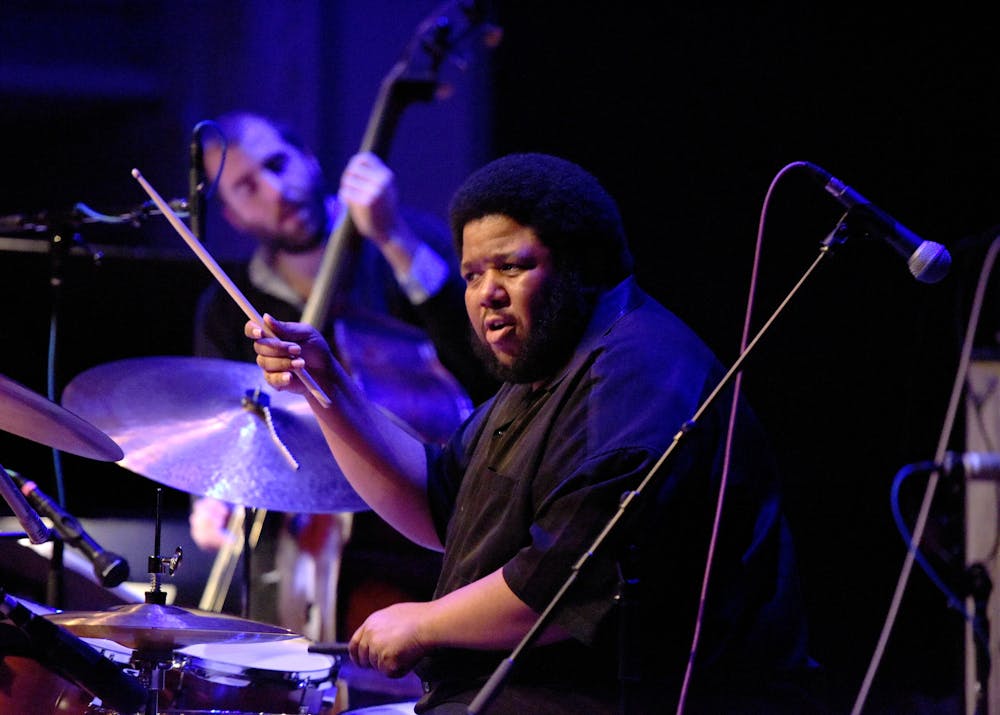Penn professor of music Tyshawn Sorey was awarded the 2024 Pulitzer Prize in music.
Sorey received the prize on May 6 for his 20-minute saxophone composition, “Adagio (for Wadada Leo Smith).” The piece was premiered and commissioned by the Atlanta Symphony Orchestra and the Lucerne Festival.
NPR classified Sorey as a “creative artist whose work is impossible to categorize." Sorey's previous compositions have been praised by critics for transcending, redefining, and even creating new musical genres.
“Adagio (for Wadada Leo Smith) is ostensibly a concerto for saxophone and orchestra,” the official Pulitzer Prize announcement said, “but in many ways, it is an anti-concerto.”
“Adagio (for Wadada Leo Smith)” requires the soloist and orchestra to have both virtuosic technique and subtle control — an aspect which the Pulitzer Board says makes it a “welcome respite from the chaos and intrusiveness of modern life.”
As the name indicates, Sorey dedicated the piece to Wadada Leo Smith, a trumpeter and composer whom Sorey considers a close mentor and collaborator.
“Every moment I spend with him is a learning experience and it’s always something that I value and cherish,” said Sorey in an interview with The New York Times.
Sorey began his tenure at Penn in 2020 and has since maintained a robust schedule of teaching, performing, and composing. Since coming to Penn, Sorey has also worked on a multitude of Philadelphia projects, including a video production of “Be Holding,” a book-length poem by Ross Gay.
RELATED:
Penn researchers receive federal grant for AI-powered research on rare disease drug treatments
Penn professor of environmental science selected for Royal Society Fellowship
Sorey has previously received a MacArthur Fellowship — colloquially known as the “Genius Grant” — and a United States Artists fellowship. He was also a 2023 Pulitzer Prize finalist for his composition “Monochromatic Light (Afterlife).” He has previously been a composer in residence at Opera Philadelphia and the Peabody Institute of Johns Hopkins University.
The Pulitzer Prizes were founded in 1917 by Joseph Pulitzer and administered by Columbia University. Currently, prizes are awarded for excellence in 23 categories of journalism, arts, and literature. The Pulitzer Prize for Music is annually awarded to a “distinguished musical composition by an American.”
Sorey joins George Crumb and Richard Wernick as Penn faculty who have received the Pulitzer Prize for Music during their time at Penn.









